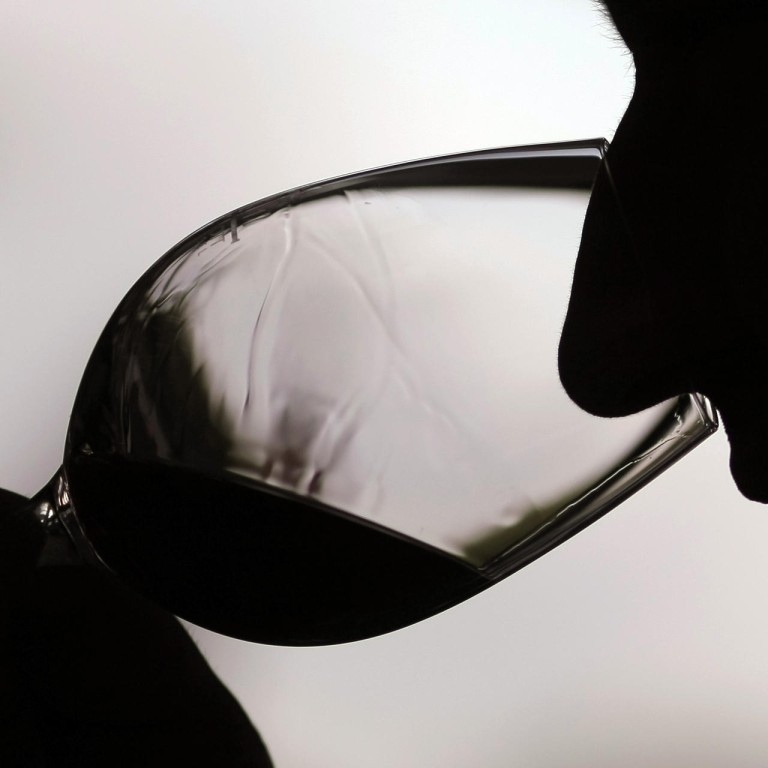
Wine consultants help salvage a poor harvest in France
If you happen to be in a French wine region this October, you may want to avoid narrow roads.
If you do take a picturesque track that steers you alongside vineyards heavy with fruit, your reward will most likely be trailing behind a slow truck loaded with crates of grapes, or sitting nerve-wrenchingly close to a harvesting machine that will wave its oversized arms towards the bonnet of your car as you pointlessly beep your horn and look for a safe place to overtake.
There is, however, a little sport that you can indulge in while you're sitting in this particularly seasonal traffic jam. Try to count the four-wheel-drive vehicles that waste no time in deftly manoeuvring their shiny flanks around any obstacles in the road, leaving both harvest machine and hapless tourist in their dust.
Behind the wheel is likely to be a wine consultant, the last line of defence against a wasted year in the vine, and a cog in the wheel of the grape harvest that is every bit as important (they would have you believe) as the optical sorting machine and the shiny pneumatic press.
"Consultants can of course overstate their importance," says author and winemaker Alain Aviotte with a wry smile. "They make a difference if winemakers let them, which means if they take their advice. But the consultants themselves have to take into account the individual requirements of each client and not ride roughshod over their knowledge of their own wines."
Wine consultancy has proliferated over the past few decades, and there is no region so small in France today to be exempt. In France, the title of oenologist dates back to 1955 when the trade was officially recognised by law. There are now 2,000 professionals working in vineyards, research centres and laboratories in the country.
The trade tends to be split between local experts who stay close to home - Bertrand Daulny in the Loire Valley, Kyriakos Kynigopoulos in Burgundy - and others who travel widely, both across France and internationally.
Bordeaux, perhaps because of its size (it has around four times as many grapes as Burgundy) and its fame, has at least a dozen sought-after names. A quick run through would give you Michel Rolland, Alain Raynaud, Hubert de Bouard, Jean Luc Thunevin, Stéphane Derenoncourt, Pascal Chatonnet, Denis Dubourdieu, Eric Boissenot, Olivier Dauga, Jean-Claude Berrouet, Stephan Toutoundji and Henri Boyer. And that is before the dozens and dozens who are employed by the local ministry of agriculture or wine-testing laboratories in the area.
At this time of year, these are the people who will start their days long before daybreak and finish up in the early hours, as they juggle phone calls, heading out to vineyards to taste the progress of grapes and juice, and spending time in their laboratories exhaustively testing pH and sugar levels in the ripening fruit.
"Your phone must never be off," confirmed Dauga, an ex-rugby player turned consultant, as I travelled around with him in his gas-guzzling four-by-four a few harvests ago.
For the poor 2013 harvest, the last line of defence will be even more crucial than usual.
"When things are more complicated weather wise, people rely more on their consultants," says Chatonnet, consultant for Chateau Cos d'Estournel in Saint-Estephe and Chateau d'Issan in Margaux, among others. "This year we will be very busy over the next few weeks, as everyone will be asking for the best dates for picking the grapes. This is probably the most crucial decision of the year, the one that will determine whether your hard work throughout the season translates into a bottle of wine that tastes good and sells well. But, once we have helped them reach that first decision we might find the phones go quiet for a while as everyone rushes to get their grapes in as quickly as possible."
"Consultants are useful for vineyard advice, of course," says Aymeric Roborel de Climens, director of Chateau de Panigon in Bordeauxd's Médoc. "But they are also someone to share our worries with - and during a difficult vintage, a friendly ear can be just as important as advice on yeasts and fermentation temperatures."

